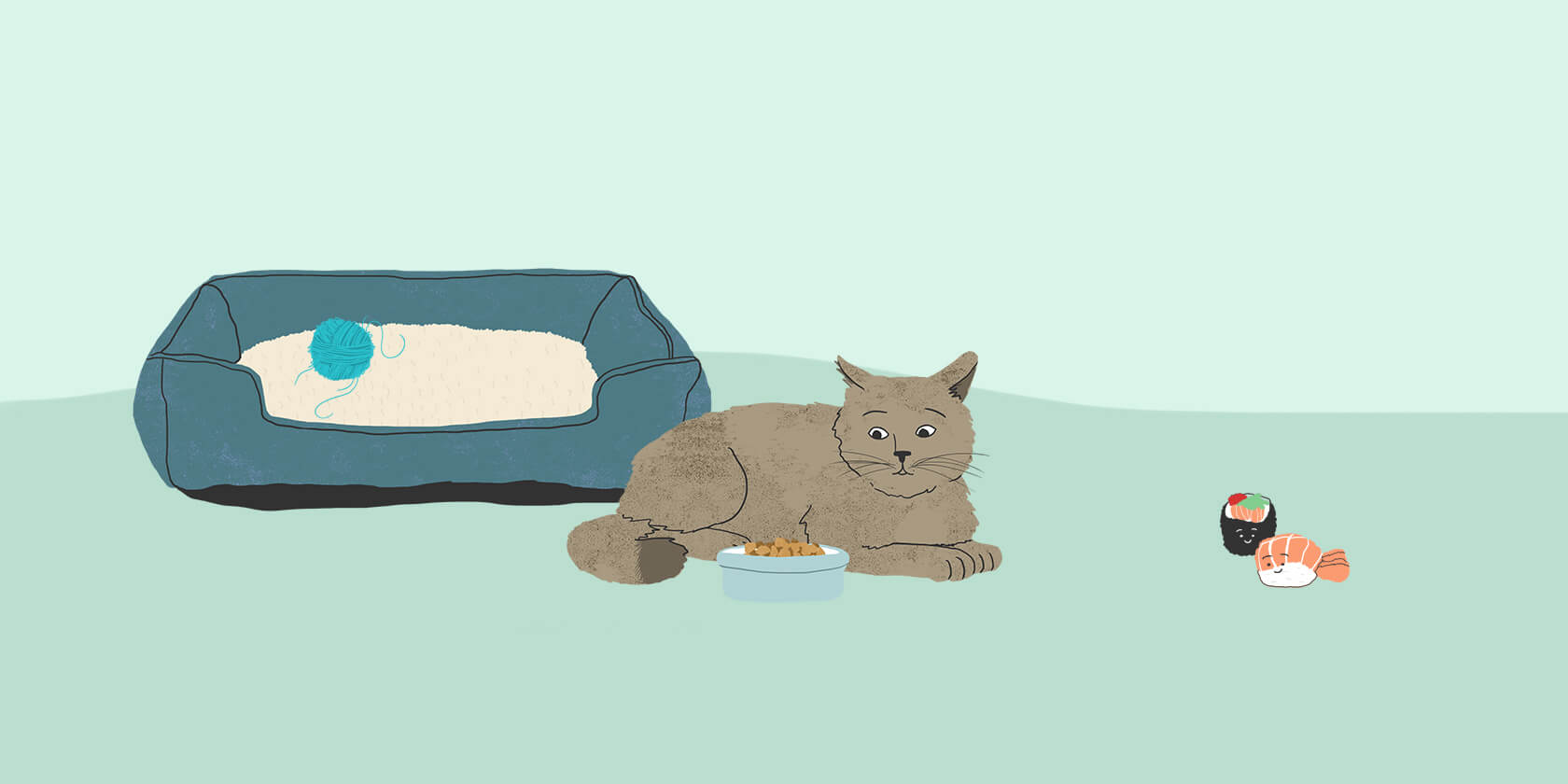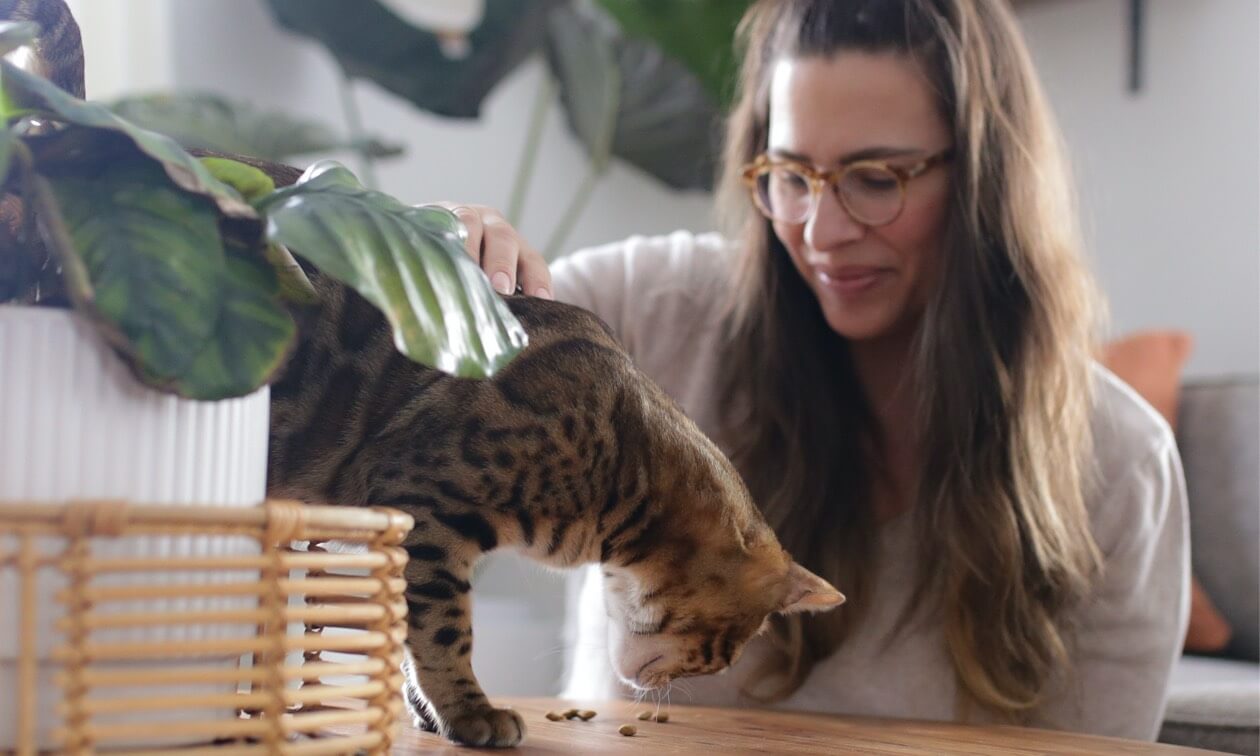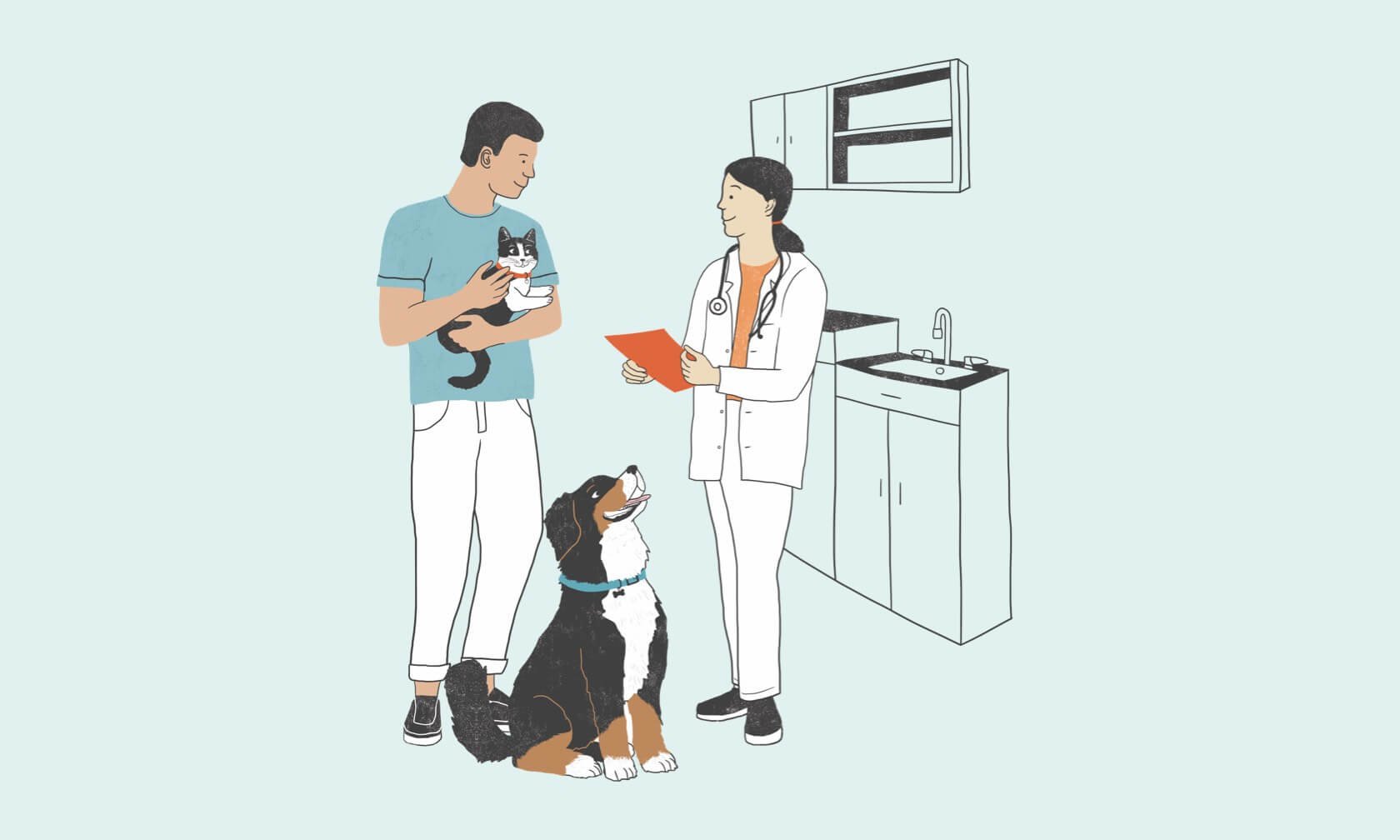An important aspect of your cat's overall health is their weight. Most cat owners worry about negative health impacts on their overweight cats, but unexplained weight loss (whether gradual or rapid) is just as concerning. Unexpected weight loss can be an indicator of underlying medical issues — and contrary to what you may have heard, weight loss is not to be expected for senior cats.
Knowing what could be causing your cat's unintentional weight loss can help you determine what to do next. Whether it's adjustments and treatments at home or a trip to your veterinarian, early intervention is crucial.
Why Weight Loss in Cats Can Be Dangerous
When cats are not eating enough, they will naturally lose weight. In some instances, due to disease, they will have weight loss despite consuming enough food. Sometimes there are other symptoms, but in some cases there are no other symptoms other than weight loss.
It's important to understand that cats who lose too much weight are at risk of a life-threatening medical condition known as hepatic lipidosis. When your cat isn't eating, the liver stores fat in large quantities to provide energy for the body. This excess storage of fat can lead to liver failure and death.
Why Can Cats Experience Weight Loss?
The causes of weight loss vary and may include illness, stress/anxiety, environment, behavioral issues, and more. It's important to make some observations about the situation to provide your veterinarian with a detailed history.

Non-Medical Reasons Your Cat May Be Losing Weight
It's helpful to first rule out causes that aren't medical. The following are some questions to ask when your cat isn't eating the way they normally would:
Feeding Bowls
Does your cat seem uncomfortable eating from their bowl? They may not like the size, shape, depth, or smell and may need them thoroughly cleaned between meals.
Bowl Location
Is it painful for your cat to reach their bowl? For some cats, especially those with mobility issues, the bowls may be too far from their resting place. For cats with arthritis, bowls may need to be raised off the ground so they can eat comfortably. Has the bowl been moved too close to the litter box? Cats instinctively don't like to eat near places they eliminate. Is their feeding spot next to an active area of the home like a door or near a loud appliance like the washing machine?
Mealtime Disruptions
Has mealtime become noisy? Is another pet bullying your cat by preventing them from eating or stealing their food? Do your children have a loud play session when your cat is eating? These can all make eating stressful.
Routine or Environmental Changes
Have feeding times been changed? Are you in a new home or have you moved their feeding spot? Do you have a new pet, child, or roommate? Changes to routine and other things happening around the home can put your cat off from eating.
Type of Food
Are you trying a new food? Is your cat having trouble chewing? Has the food been sitting out too long? Even if your cat has been eating the same food for years, they can suddenly change their preferences for many reasons that have nothing to do with being picky.
If your cat continues not to eat after addressing any of these issues and giving a short adjustment period, you should have them evaluated by a veterinarian right away.
Medical Reasons Your Cat May Be Losing Weight
It's often difficult to determine when cats are sick. But weight loss, especially if they're still eating, is a key indicator of an underlying health issue. You should be aware of some common health issues resulting in weight loss.
Gastrointestinal Issues
Any problems that affect the GI tract can cause issues with your cat's weight. When the GI tract is impacted by illness, it can reduce your cat's appetite. Additionally, certain medical problems can interfere with proper digestion and absorption of nutrients, leading to weight loss. Intestinal parasites or other infections, inflammatory bowel disease (IBD), food intolerances or allergies, pancreatitis, and cancer can all impact the GI tract.
Treatment depends on the cause. Intestinal parasites can be treated with antiparasitic medications, whereas other issues can require other medications, dietary changes, supportive care, and possible surgery.
Dental Issues
The discomfort and pain that cats experience from dental issues can cause a decrease in appetite or difficulty eating. Your vet may consider periodontal disease, loose, broken, or fractured teeth, resorptive lesions, and stomatitis (inflamed, sore mouth).
Evaluation and treatment is dependent on the cause but often includes a professional dental cleaning and oral health assessment with dental x-rays and other medical therapies. It may also be necessary for your cat to have oral surgery or tooth extractions.
Diabetes Mellitus
Diabetes is an endocrine disorder that affects the pancreas' ability to produce insulin or the body's ability to respond to insulin. It can cause rapid weight loss as well as an increase in drinking and urination. Diagnosis is based on blood and urine tests.
Diabetes treatment includes insulin and dietary management.
Hyperthyroidism
This condition occurs when there is an overproduction of thyroid hormones due to a usually benign tumor on the thyroid gland. Typically, cats have increased thirst, urination, activity, vocalization, and appetite. Despite a ravenous appetite, cats still lose weight. Diagnosis requires blood work and other tests depending on the symptoms.
If hyperthyroidism is left untreated, cats can develop heart problems, high blood pressure, and heart disease. These can lead to blindness, heart failure, and death.
Treatment consists of surgery, radioactive iodine treatment, oral medication, or prescription diet.
Kidney Disease
The kidneys have many vital functions, such as removing toxins or waste from the blood, helping regulate blood pressure, and producing hormones. They're also important to the production of new red blood cells. When they fail to function properly, cats have increased thirst and urination, decreased appetite, dehydration, and weight loss. A kidney disease diagnosis is made by your veterinarian via blood and urine tests.
Treatment involves medications, diet changes, nutritional supplements, and fluid therapy. There is no cure for chronic kidney disease.
Cancer
This is often the cause of sudden weight loss in cats. Lymphoma is a common cancer found in a cat's GI tract, mouth, lymphatic system, and other areas. Almost all forms of cancer will lead to loss of appetite, muscle wasting, and generalized weight loss. Diagnosis involves blood work, radiographs and/or ultrasound, and biopsies.
Treatment is dependent on the type and location of the cancer. Cancer is treated with surgery, chemotherapy, pain medications, and other medications.
How to Evaluate Your Cat's Weight
It can often be difficult to realize your cat has lost weight, especially when it happens gradually, or your cat has a thick coat. It may be that they feel lighter, or you notice changes in their body shape.
The best way to assess your cat's weight and monitor trends is to routinely take them to the veterinarian for wellness examinations. The clinic keeps track of how much your cat has gained or lost over time. They can also help determine your cat's ideal weight based on their breed and body type.
At home, you can look at your cat from different angles and examine them with your hands. Stand over your cat and look down on their back. They should have a subtle hourglass shape tucked in behind the ribs at their side. It should be noticeable, not extreme.
Take your hands and slide them along your cat's back and rib cage. You should be able to feel the bones of the spine, but they shouldn't be sticking out or visually obvious. You should be able to feel the ribs, but there should be a thin layer of fat covering them. Your cat is underweight if the ribs are very visible, and you can see the spaces between them.
It can also be helpful to get a pet scale or baby scale to monitor your cat’s weight at home.
ZPC-01955R1



